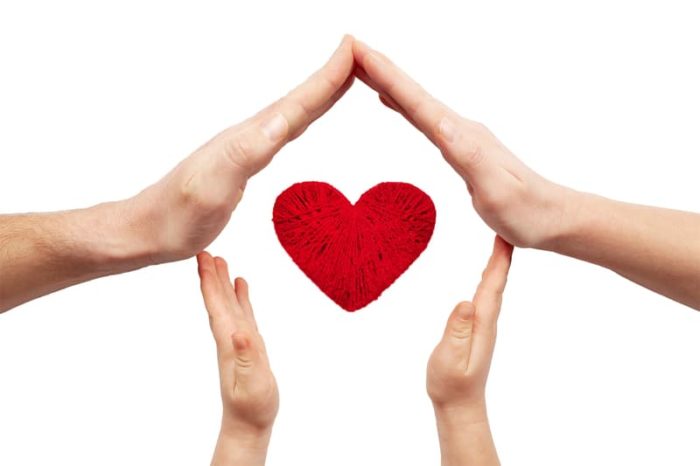- Calls to this hotline are currently being directed to Within Health, Fay or Eating Disorder Solutions
- Representatives are standing by 24/7 to help answer your questions
- All calls are confidential and HIPAA compliant
- There is no obligation or cost to call
- Eating Disorder Hope does not receive any commissions or fees dependent upon which provider you select
- Additional treatment providers are located on our directory or samhsa.gov
Postpartum Depression & Binge Eating Disorder

Postpartum depression (PPD) is a common problem that people may experience after giving birth. In fact, 1 in 9 women experience this condition after pregnancy [1]. Even though anyone can develop PPD, people who have a history of binge eating disorder (BED) are more at risk for experiencing PPD [2].
What is Postpartum Depression?
Postpartum refers to the time after childbirth. Women who struggle with PPD often feel sad, hopeless, or empty [1]. It’s normal to feel sad or overwhelmed the first few days after having a baby. PPD is when sadness, hopelessness, or empty feelings last more than two weeks [1].
There are other symptoms of PPD. Other symptoms include:
- Crying a lot
- Having thoughts about hurting yourself or your baby
- Feeling disinterested in the baby or not feeling connected to the baby
- Low motivation and energy
- Eating more or less than normal
- Sleeping too much or not enough
- Losing interest in things you used to find enjoyable
- Isolating from friends or family
- Memory problems
- Indecisiveness
- Stomachaches, body aches, or stomach problems [1]
Postpartum Depression, Binge Eating Disorder, and How They Intersect
People who have struggled with BED are more at risk for developing PPD [2]. Research shows that this might be because perfectionism is a common trait in people with BED [2]. Perfectionism is shown to trigger PPD [1]. Perfectionism may become more intense during the first few weeks after having a baby, especially if you are a first-time mom.
Regardless of why someone is engaging in disordered eating behaviors or struggling with PPD, it’s nothing to be ashamed of. While these two conditions can cause serious harm, it’s not something that should be kept secret. Sometimes people feel they need to hide the fact that they are struggling. This may be especially true for mothers as there’s often pressure to just be happy with their newborn baby. PPD does not mean that someone’s a bad mom. It just means they’re struggling and need mental healthcare.
While there is research about how a history of eating disorders can increase the risk for developing PPD, there isn’t much research about how BED could develop after having a baby. Eating disorders can be a way to cope with stress or other difficult feelings. If someone is struggling with PPD, it’s possible that they may rely on disordered eating behaviors to cope with the stress of having a newborn child.

Treatment for Postpartum Depression
PPD can be treated [1]. There are different treatment methods for PPD. Some common approaches are:
- Therapy- As mentioned earlier, PPD is a mental health condition. Mental health counseling can help new mothers figure out how to cope and how to manage symptoms of depression.
- Medication- There are medications that can help treat depression. Some of these medications are safe to take while breastfeeding [1].
- Support System- Dealing with depression on top of the responsibilities that come with raising a newborn can be overwhelming. Having support from friends or family can be helpful. Whether they come over so you can take a nap or they listen to you about how you’re feeling, letting other people support you during this phase of life can be really helpful. Finding a support group for PPD can also be a source of support [1].
Prevention Strategies for Pregnant Women with a History of Binge Eating Disorder
For people who have struggled with BED in the past, it’s important to be aware of the risks if you become pregnant and decide to have a baby. It might be helpful to think ahead about how you can support yourself during the first few months after your bring your baby home. This can help prevent depressive symptoms from getting too severe or can help you feel more prepared for how to take care of yourself during this transition into motherhood.
Again, PPD is very common and it’s nothing to be ashamed of. Keeping pain a secret doesn’t help heal it, it just keeps you isolated. If you are struggling with PPD, reach out for help today. You don’t have to go through this alone.
Resources
[1] Office on Women’s Health. (2019, May 14). Postpartum depression. https://www.womenshealth.gov/mental-health/mental-health-conditions/postpartum-depression [2] Mazzeo, S.E., Slof-Op’t Landt, M.C.T., Jones, I., Mitchell, K., Kendler, K.S., Neale, M.C., Aggen, S.H., Bulik, C.M. (2006). Associations among postpartum depression, eating disorders, and perfectionism in a population-based sample of adult women. International Journal of Eating Disorders, 39(3), 202-211. doi: 10.1002/eat.20243About the Author:
 Samantha Bothwell, LMFT, is a licensed Marriage and Family Therapist, writer, explorer, and lipstick aficionado. She became a therapist after doing her own healing work so she could become whole after spending many years living with her mind and body disconnected. She has focused her clinical work to support the healing process of survivors of sexual violence and eating disorders. She is passionate about guiding people in their return to their truest Self so they can live their most authentic, peaceful life.
Samantha Bothwell, LMFT, is a licensed Marriage and Family Therapist, writer, explorer, and lipstick aficionado. She became a therapist after doing her own healing work so she could become whole after spending many years living with her mind and body disconnected. She has focused her clinical work to support the healing process of survivors of sexual violence and eating disorders. She is passionate about guiding people in their return to their truest Self so they can live their most authentic, peaceful life.
The opinions and views of our guest contributors are shared to provide a broad perspective on eating disorders. These are not necessarily the views of Eating Disorder Hope, but an effort to offer a discussion of various issues by different concerned individuals.
We at Eating Disorder Hope understand that eating disorders result from a combination of environmental and genetic factors. If you or a loved one are suffering from an eating disorder, please know that there is hope for you, and seek immediate professional help.
Published May 8, 2021 on EatingDisorderHope.com
Reviewed & Approved on May 8, 2021, by Jacquelyn Ekern MS, LPC

The EatingDisorderHope.com editorial team comprises experienced writers, editors, and medical reviewers specializing in eating disorders, treatment, and mental and behavioral health.

